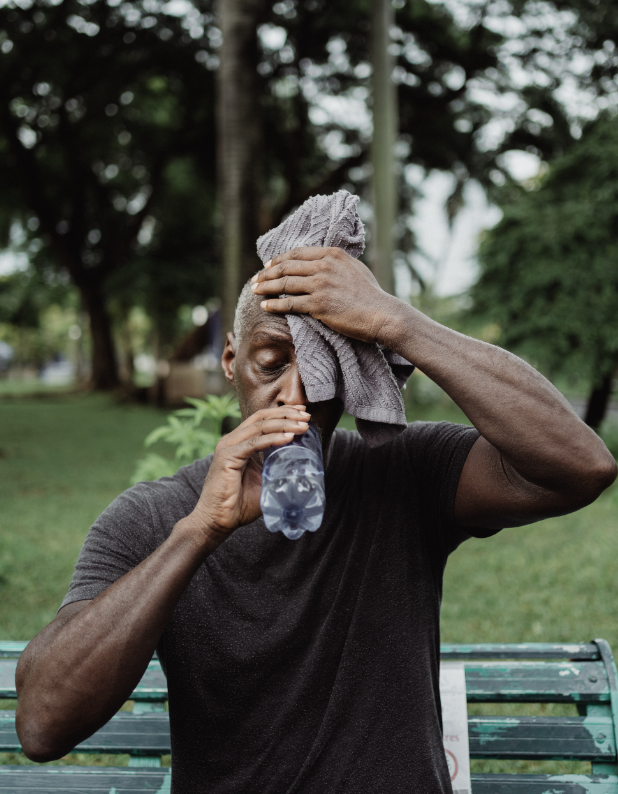Drink Up: Monitor Your Hydration As You Get Older
July 20, 2022

In a summer already burdened with extreme heat worldwide, you can never get too much information on how to protect yourself and look for the signs and symptoms of heat distress. Along with serious illness that can come from overheating is the threat of dehydration, something already of concern for older adults even without excessive heat waves. While we’ve touched on the dangers of dehydration before, it’s a good time to review and update your info to ensure you are sufficiently hydrated this summer, especially given you are already at risk just being over the age of 60.
Dehydration is, in fact, a common concern for older adults. A recent article in Discover Magazine outlines many of the reasons. It’s estimated that 40% of older adults are chronically underhydrated and that dehydration is among one of the most common diagnoses for hospitalized older adults. What accounts for this? Surely in most cases, it’s not due to inadequate access to water. Rather, it has to do with the fact that older brains don’t communicate the “thirst” sensation as readily as younger brains, so that older adults have less inclination to feel thirsty. Moreover, many of the medications taken by older adults can cause dehydration, thereby exacerbating the already natural tendency to be less hydrated as you age. What happens if you’re an older, dehydrated person? Given that water is essential to almost all bodily functions (giving you energy, helping with digestion, regulating your temperature, lubricating your joints) dehydration can lead to serious health problems (though many of these are often confused with other health concerns, so the diagnosis of dehydration may not be quickly picked up). For example, without sufficient hydration, you’re likely to have a dry mouth, fatigue, dizziness, muscle cramps, balance or mobility issues, or even cognitive impairment. Your skin may also lack plasticity and your breath may begin to smell bad. If you’re not peeing at least 6-7 times a day, or your urine color is darker (more like the color of apple juice than lemonade), those may also be signs that you lack sufficient hydration.
So what are the tricks and hacks for staying sufficiently hydrated, especially in this summer of excessive heat? Of course, much depends on your current physical health, age, and gender. Your need for water may also depend on how much you sweat during the day and where you live. In addition to making sure you drink whenever you feel thirsty, it’s probably a good idea for older adults to just generally sip water throughout the day in small amounts, rather than wait for thirst to arise. Setting a timer as a reminder to drink is also useful, as is making sure to eat foods that have high water content, including melons, berries, cucumbers, citrus, or celery. If you eat the right foods, you can easily ensure you’re getting at least 20% of your necessary hydration through food rather than drinking. You can also diversify your drinks beyond water, consume soups, and even down some salty pickles or olives that can also be hydrating. Just stay clear of a cold beer or other alcoholic beverages, which can themselves be dehydrating. For more food and beverage ideas, slice up that watermelon and click here and here.
Finally, it may sometimes be unclear when’s the best time to make sure you’re drinking enough (and yes, many of us worry about needing to pee during the night). There are some practical suggestions to help you schedule your hydration: Make sure you drink when you wake up (we’re all dehydrated from not drinking during the night); Grab a glass whenever you feel yourself sweating; If you fly, make sure to drink water (the air in planes is very dry); if you feel a headache coming on or find yourself slumping during the midday, a glass of water should help pick you up and may lessen the likelihood of a migraine (dehydration can be a migraine trigger). And if you’re about to embark on some exercise, make sure to grab a water bottle to stay hydrated. Because if you’re sweating up a storm (a real possibility in this current weather) you need to make sure to replace what you’ve lost.







